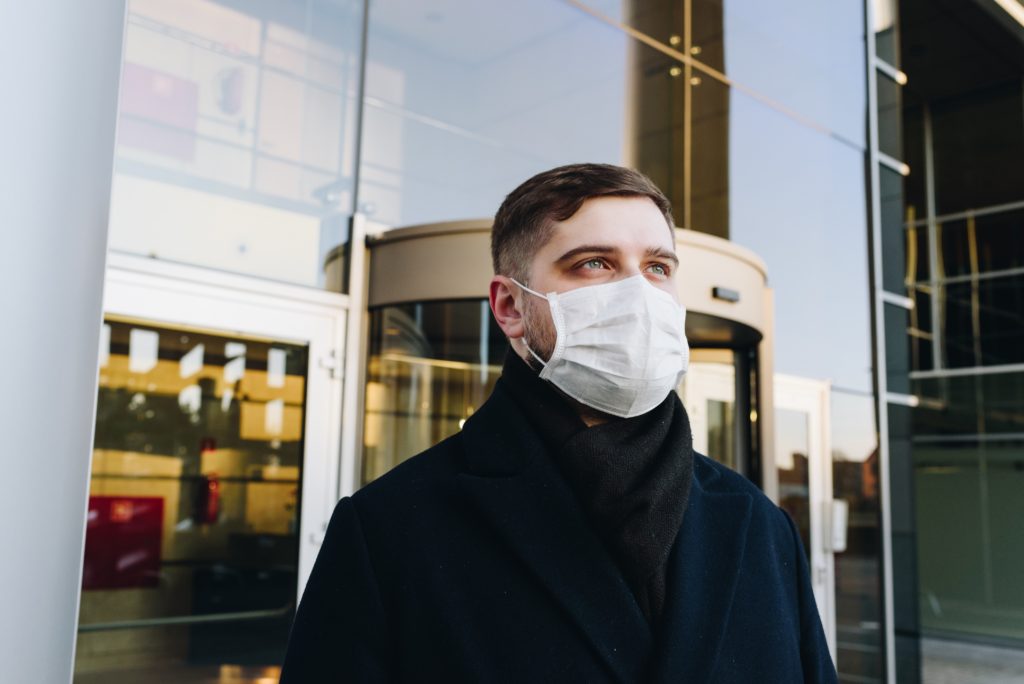How to Avoid WorkCover Claims Due to COVID-19
COVID-19 has disrupted the world, especially between staff and employers. If there were ever a time when businesses were challenged, it has definitely been over the last two years.
While employers and other agencies have focused on minimising the risks of COVID-19 for their businesses and employees, there are other areas we need to consider as we continue to navigate the COVID-19 pandemic.
In this blog, we will talk about:
- Ensuring best practice recommendations
- Non-vaccinated workers in the workplace
- How to minimise, mitigate and prevent future WorkCover claims
- The impacts WorkCover claims have on businesses
Workers in a range of industries, including but not limited to hospitality, education, emergency services, cleaning and health care, have an elevated risk of exposure to the COVID-19 disease. So what steps do we recommend to avoid WorkCover claims due to COVID-19 in these industries?
Best Practice Recommendations
Take the appropriate measures to reduce the COVID-19 exposure within the workplace by reviewing Workplace Health and Safety requirements.
- If it is not mandated for the business, encourage workers to be fully vaccinated based on government directives.
- Ensure regular hygiene practices, such as frequent workspace cleaning, hand washing stations, sanitisers, masks and PPE, are in place.
- Have a COVID-19 Vaccination Policy and outline the requirements to comply with government directives.
- Review the medical exemptions of your workers.
- Request employee COVID-19 vaccination status.*
- Ensure social distancing practices are still in place.
- Review staff working conditions and requirements.
- If staff are unwell or sick, ensure they stay home until they are better.
*You need to ensure you maintain the privacy of all medical documents stored on an employee’s file and sensor any existing medical conditions.
Refusal or Exemptions to get Vaccinated
When dealing with employees refusing to get vaccinated, it is important that employers consider their obligations and responsibilities under anti-discrimination laws. These laws generally prohibit discrimination against employees in the workplace based on protected characteristics.
Employers and managers should consider an employee’s request for a vaccine exemption on an individual basis. A completed Medical Contraindication Form issued by a qualified medical practitioner with a valid registration can be used as evidence.
It is vital to continue to protect the health and safety of your community, but, at the sole discretion of the company, employees with an approved vaccine exemption may be accommodated through measures other than being granted access to attend on-site work.
Preventing WorkCover Claims
Under the Workers Compensation Act, to accept a claim for compensation, specific criteria need to be met. For a claim to be covered, a worker’s employment must be a substantial or main contributing factor to the injury or illness.
While workers’ compensation claims are expected to increase, non-essential workers will need to prove they were infected with the virus at work and not elsewhere, including on public transport or the shops. In some circumstances, COVID-19 may be a compensable workplace injury. To prevent these claims from arising, we suggest you follow the best practice recommendations above to ensure your workplace is COVID safe.
Whilst psycho-social injury claims, as with mental health problems, have risen due to the pandemic, it is best to ensure that as an employer or manager, you are supporting and motivating your team. Think about ways to bring them back to work if they aren’t already. Perhaps consider conducting team-building exercises, offering a half a day or even a full day where everyone gets back to the office to spend time socialising.
Impacts on business
A company aims to continue to support customers and clients with no or minimal disruption. Due to this pandemic, alleging wrongful termination, discrimination, retaliation, and many other forms of claims could come into play.
To mitigate the potential for a wrongful termination claim, employers should proceed carefully upon receiving employee complaints. Employers should also maintain meticulous records of complaints, the investigation process, and the ultimate reasoning behind the termination. Record notes of conversations with employees on options available to them, or better yet, send them a letter or email confirming the mutually agreed plans.
Other factors to consider are remote working and worker satisfaction. It is crucial to consider the hybrid model and whether or not working from home is the future for your business. If it’s not, consider your company methods and strategy on how to work on unexpected challenges. Now may be a good time to reconsider your business model and update your business plan.
It is important to consider all these factors and develop a return-to-work plan or schedule that adheres to local safety guidelines and aligns with your business practices. Ensuring fair and reasonable documented workspace hygiene practices, PPE, social distancing measures, and many other forms of infection prevention is necessary.
Communication with employees about implementing new and current workplace practices is the key for all workers and employers to be on the same page! Don’t forget, training the employees, managers, and supervisors on the new changes is just as important.
If you need help planning these changes or want more information on how to avoid WorkCover claims due to COVID-19, please reach out to the experts at Key Business Advisors. We are here to support you!
At KBA we have a vast number of downloadable information from our company website: www.keyba.com.au
We are a team that is very passionate about taking businesses from good to great.
If you would like help or want to know more about our services, please contact us at Key Business Advisors on 1300 4 ADVICE




